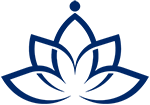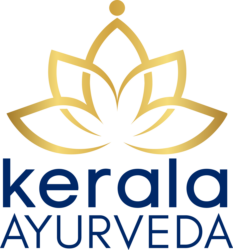What is Ayurveda?
Ayurveda, or Traditional Indian Medicine, is the oldest documented health care system in the world. This science has existed for over 5,000 years. Today, the source Ayurvedic texts have been translated from their original Sanskrit, giving rise to Ayurveda’s growing popularity across the globe.

THE COMMON SENSE SCIENCE
Ayur (life) – Veda (science) literally translates to “the science of life.” More than a health system, it is a vast body of knowledge for everything in the cosmos. It offers overarching principles of matter, energy, nature, and the relationships of all things, as well as highly specific guidelines for preventing and managing human health as a part of the whole.
Ayurveda is an ocean; however, its approach to wellness is simple and intuitive—so much so that we like to call it “the common sense science.” Its objective is to approach wellness through the balance of the mind and body through lifestyle practices, natural therapies, and herbal remedies.
The history and origins of Ayurveda
Ayurveda developed in the Indian subcontinent thousands of years ago and was originally practiced through oral tradition before the Vedic texts, commonly known as the Vedas, were composed. The Vedas are the oldest compilation of knowledge and wisdom imparted by the Rishis, the ancient population of modern-day India. Of the four Vedas, Ayurveda originated from the Atharvaveda body of knowledge, which dates to around 1,000 B.C. The most famous of these texts are the Charaka Samhita, Sushruta Samhita and Ashtanga Hridayam, which concentrate on internal medicine, surgery, and all eight clinical branches of Ayurveda.
Knowledge of Ayurveda is essential in today’s world
Ayurveda’s primary goal is the preservation of health and prevention of disease by establishing balance and harmony through personalized, holistic lifestyle solutions. The World Health Organization recognizes Ayurveda as a complete, natural health care system.
Today’s population suffers from a growing tide of chronic illness, lack of personalization in medical attention, rising healthcare costs, and alarming threats to the planet’s ability to support human life. Ayurveda answers the increasing demand for holistic solutions to these problems.
If you are exactly translating the definition of Ayurveda, it says that Ayurveda is the science which is aimed at enhancing the quality and quantity of life. What does that mean? Quality of life means physical strength, physical balance; mental strength, mental balance; peace, harmony and balance. Enhancing the quantity of life is about longevity. Following the principles of Ayurveda can help us to live longer and live with the optimal quality of health.
— Vaidya. Jayarajan Kodikannath


THE BENEFITS OF AYURVEDA
Ayurveda’s benefits include:
- Personalization – customized solutions based on an individual’s unique needs
- Long lasting results – targeting the root cause of imbalance
- Cost-effectiveness – emphasis is on prevention of future imbalances
- Sustainability – natural, holistic approach to mind, body, and spirit
Ayurveda does not treat symptoms – it targets the root of illness
The emphasis of Ayurveda is on maintenance of balance in the mind-body system or disease prevention. Part of what makes Ayurveda so effective is its comprehensiveness in acknowledging that human health is part of a greater whole, including the health of the planet.. By working with the fundamental elements in our universe and understanding how to detect their qualities in our own lives, Ayurvedic wisdom provides the key to maintaining and restoring balance.
For example, when there is too much of one element present in the human system, introducing counter elements can restore balance— naturally, without side effects. This commonsense approach enables us to target the elemental root of illness, restoring total mind, body, and spirit wellness.


AYURVEDIC HEALING INTERVENTION
How it “works”
Ayurvedic healing focuses on completely understanding the client’s physical, mental, and emotional state. The ancient texts provide us clear guidelines for assessing the unique mind-body constitution of an individual and how to detect an imbalance.
Based on an individual’s state of health, lifestyle recommendations or healing interventions are recommended to address his or her unique needs. Additional factors of time such as age, the seasons, and the time of day also contribute to best practices for health.
What do Ayurvedic guidelines and interventions include?
Diet
Lifestyle
Exercise and activity
Yoga, Pranayama (breathwork) and meditation
Living environment and climate recommendations
HERBS & SUPPLEMENTS
Panchakarma (five-fold detoxification) and Rasayana (rejuvenation)
Graduates of both our basic certification, the 300 hour Holistic Ayurvedic Coach (HAC) program, as well as our level I certification, the 600 hour Ayurvedic Health Counselor (AHC) program are trained in guiding others with all the above lifestyle tools.
Deeper healing
Many simple lifestyle changes can have a dramatic impact on well-being, but when an imbalance cannot be resolved through lifestyle changes alone, Ayurveda offers even deeper healing interventions in the forms of:
Herbal formulations and supplements
The Vedic texts outline in detail thousands of recipes of herbal combinations for managing a variety of imbalances.
Graduates of our level II certification, the 910 hour Ayurvedic Practitioner (AP) program, as well as the level III certification, the 2,6600 hour Ayurvedic Doctor (AD) program are trained in herbal formulation recommendations for disease management.
Panchakarma detoxification and bodywork
Panchakarma is a total system of detoxification,which includes bodywork, herbalized oil treatments, and specialized diets administered over the course of several days, typically from 3 to 21. Part of what makes Ayurvedic detoxification unique is its emphasis on rejuvenation, known as Rasayana, to ensure that the disease cleansing process is followed up with adequate restorative action to replenish the system.
Graduates of our level I certification, the level I Ayurvedic Health Counselor (AHC) program are introduced to Panchakarma and learn how to recommend and implement simple therapies. Designing Panchakarma programs is covered during the level II and level III certifications, the level II Ayurvedic Practitioner (AP) program, as well as the level III certification, the level III Ayurvedic Doctor (AD) program. We also offer a specialty certification, the 250 hour Panchakarma Technician program for training in the implementation and execution of Panchakarma bodywork and therapies.



